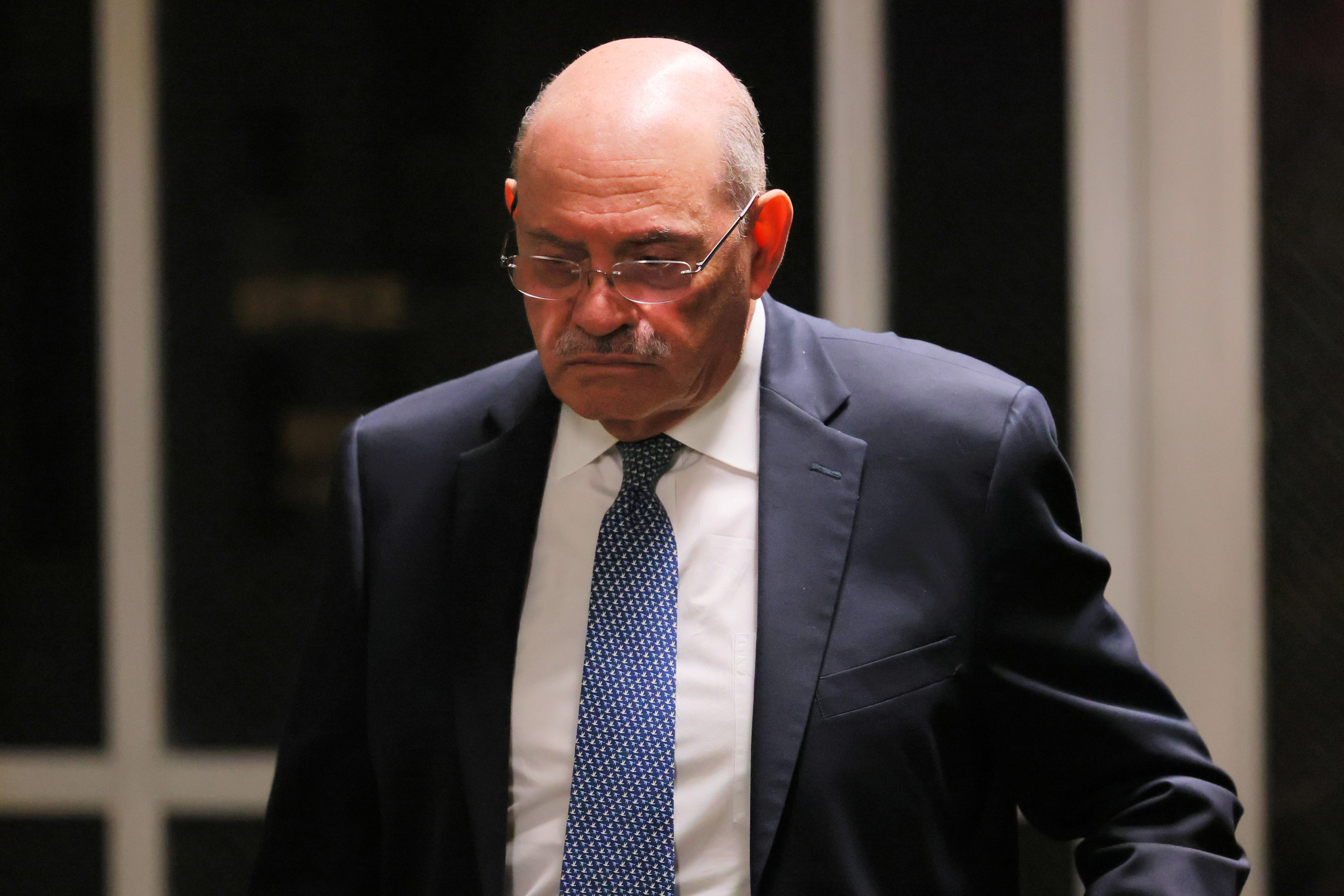The $250 million civil fraud trial against Donald Trump is set to continue in New York on Tuesday, with potential key testimony from a former chief financial officer at the Trump Organization.
Allen Weisselberg, who has been named in New York Attorney General Letitia James’ lawsuit alongside the former president, his sons Eric and Donald Trump Jr., and the real estate company, will take the stand as part of the ongoing fraud case.
Trump is accused of filing fraudulent statements that inflated the value of his properties and assets for years in order to obtain financial perks. Trump, the frontrunner in the 2024 Republican presidential primary, has denied any wrongdoing in connection to James’ suit and accused the case of being a politically motivated “witch hunt.”
While taking the stand, Weisselberg is expected to testify about his role in helping to prepare Trump’s annual financial statements, which James alleged inflated the former president’s net worth by billions of dollars over the years.
James alleges that Weisselberg signed off on statements that vastly overvalued Trump’s properties—despite appraisers offering their own estimates—and changed them to meet the former president’s demands.
Weisselberg served 100 days of a five-month sentence after pleading guilty to 15 felony charges in a separate case regarding a tax evasion scheme carried out by the Trump Organization. Weisselberg admitted to carrying out the plot to provide executives with bonuses and perks that saved the company money, as well as evading taxes on more than $1.7 million of benefits, including school tuition for his grandchildren and rent for a Manhattan apartment.
Weisselberg, whose loyalty to Trump stretches back decades, did not implicate the former president in his previous fraud trial, nor did he while testifying in the trial involving The Trump Organization which resulted in the company being fined $1.6 million for carrying out a 15-year scheme to defraud tax authorities in January 2023.
During his May deposition as part of James’ investigation, Weisselberg said that Trump would put a question mark next to a number in financial statements before suggesting an alternative figure or description.
“And from that point forward, we would either show him how we got to that number and why we felt it was appropriate or he may have had a better—other information that we weren’t aware of that we may have used instead.”
Weisselberg also claimed it was more other people’s responsibility to “delve into the numbers” on the financial statements, but he would give them to Trump to review before they were submitted.
“I’d walk into him and tell him, you know, we had the draft statement. And, usually, he was on the phone doing a million things. He didn’t have time to sit down and spend hours reviewing it,” Weisselberg testified. “I would give it to him and most times I would leave it on his desk and then he would look at it when he had the time and that would be it.”
Judge Arthur Engoron, who is overseeing the civil trial, ruled that Trump had committed fraud while inflating the value of several properties in a September 26 ruling.
The decision means that the proceedings in New York will now rule over six remaining allegations in James’ lawsuit, as well as the size of the penalty, which could see Trump having his companies and properties removed from his control or dissolved.

